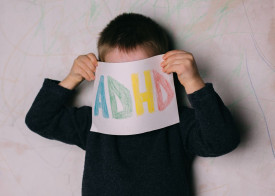
Different people have different experiences of the festive season. Some people associate it with excitement and fun, while for others it’s difficult. For lots of autistic people, and for families with an autistic member, Christmas can bring challenges.
There’s no right way to celebrate a holiday
We know there’s a lot of pressure around the holidays. First up, and most importantly, remember that you shouldn’t feel forced to celebrate or take part in a particular way. It’s OK if your Christmas doesn’t look like other people’s. As long as it works for you and your loved ones, that’s all that matters. The best way to achieve a successful festive period is by communicating with guests to make sure everyone has an enjoyable time.
Things you might want to consider:
- Let your autistic person see a schedule so they know what’s happening.
- Ask guests to arrive or leave at certain times to maintain routine.
- If you’re visiting others, ask if they can make things easier by turning off Christmas lights or removing scented candles if someone has sensory issues.
- Have an escape plan if you’re visiting family or friends if things get too much.
- Advise people on how to wrap presents (see below!).
- Set expectations around physical contact, other expectations, and meal times.
- Ask them to let you know of any changes, and keep the autistic person in the loop so that they’ll be able to prepare themselves, and ask any questions.
- Remember to take some self-care time for yourself, it’s your holiday season too.
Preparing the presents
An exquisitely wrapped, brightly coloured present is often used to represent this festive season, but these wrappings can be a problem for someone with autism. Don’t despair! There are a few ways you can ensure your gifts are autism-friendly while keeping the festive spirit. The wrapping may be too overwhelming for them if they have Sensory Processing Disorder, as it may be too bright, or the noise of them touching or ripping the paper may be uncomfortable for them. It might even be that they simply haven’t developed fine motor skills such as peeling off sellotape and untying bows. Luckily, there are easy ways to wrap presents in an autism-friendly way.
You can wrap a gift in muted paper with a picture of what’s inside displayed on the front so they can have the fun of unwrapping but removes the stress and uncertainty of not knowing what’s inside. If the autistic person doesn’t like wrapping paper, try putting it in a gift bag so they can see the content and can remove the present easily without overloading their senses. It’s also a good idea to stagger the presents as some people don’t like being given too many at one time as it can overwhelm them. One of our clients gives her daughter three presents per day for around a week, and the child has plenty of time to enjoy them before opening the next gifts.
Who needs turkey at Christmas?
Christmas food is what many people look forward to at the end of the year, but for someone with autism, it could be overwhelming. When you’re in the privacy of your own home, the coping behaviours are more manageable. However, if you’re eating out over the festive period, it may be more difficult to manage due to the different settings and pressure of your surroundings. It may be better to allow the autistic person to eat their favourite food during this meal and bring their cutlery, to allow them to keep to their routine. It’s also a good idea to try holiday foods in advance to help them get used to the new sights, smells and tastes. If they’re comforted by an iPad, let them enjoy it and forget any judgements.
At the table, it’s important to be aware of things that make loud noises: such as Christmas crackers and party poppers. You can either ask if people can avoid using them, or ask them to give you or your child a warning before they do. Ear defenders are your best friend.
Festive holiday: our Christmas tradition
Can you go on holiday and get away from it all? We used to book a lodge in woodland in Devon. My son, Jordan, loved it because there were no lights or decorations and it was him running around in the quiet woodlands. He felt comfortable and was able to stick to the bits of the routine that he really liked, such as regular eating times. We didn’t do presents or any festive activities, we just let him be himself in a different setting. We also don't try and get our kids in photos if they don’t want to. It takes the pressure off everyone, and you’ll all have a lovely Christmas.
Want more ideas? There are some helpful resources here.
How do you celebrate this festive time? Any tips we’ve missed? We’d love to hear, so contact us today.




